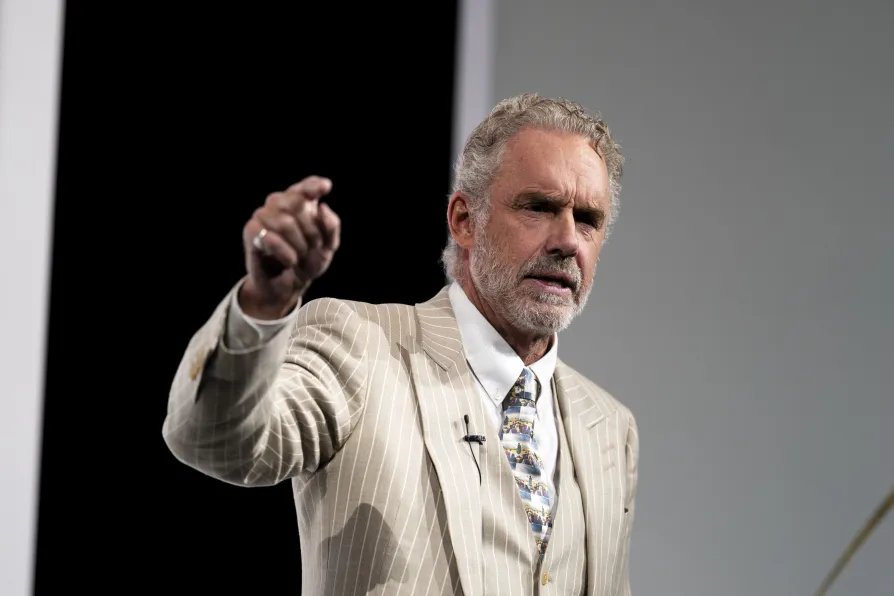SWEE ANG, the founder of Medical Aid for Palestinians, is a big believer in the power of small actions, and she is the living proof it works, writes Linda Pentz Gunter
MYLES TRAPPERBY explains how the crisis of masculinity fuels a backlash against women

 ‘MANOSPHERE’: Online commentators like Jordan Peterson (left) and Milo Yiannopoulos have blamed women’s rights for a crisis of meaning and purpose in contemporary society felt by many men. Photo: @Kmeron for LeWeb13 Conference/CC
‘MANOSPHERE’: Online commentators like Jordan Peterson (left) and Milo Yiannopoulos have blamed women’s rights for a crisis of meaning and purpose in contemporary society felt by many men. Photo: @Kmeron for LeWeb13 Conference/CC
IN RECENT years, we’ve witnessed a disturbing rise in overt sexism, misogyny and gender-based violence — not just online, but embedded within cultural, political, and even progressive spaces. From the manosphere’s growing influence to the regressive ideologies echoed by influencers and public figures, a new wave of anti-woman rhetoric is gaining traction. But beneath the toxic surface, a deeper, more complex issue emerges: a crisis of male identity, rooted in a widespread sense of powerlessness.
The truth is uncomfortable, but essential: as traditional systems collapse and the promises of masculinity go unfulfilled, some men respond not with solidarity, but with hostility — especially toward women.
This contradiction is not new. It echoes throughout history, including within revolutionary and progressive movements. And it is echoed, too, in writing by cultural commentators who grappled openly with what it means to be a man in an age where traditional masculinity no longer ensures relevance, purpose or power.
From an early age, boys are fed an image of what a “successful man” should be: strong, stoic, dominant. A breadwinner. A protector. A man of action and authority. These traits, rooted in patriarchal values, form a blueprint for male self-worth. But what happens when the world no longer aligns with that blueprint?
Neverending “once-in-a-lifetime” crises, economic insecurity and social fragmentation have left many men feeling adrift. Stable employment is harder to find. Authority figures — from police to politicians — are widely distrusted. Communities have eroded and institutions once seen as dependable sources of identity—trade unions, churches, extended family networks — are weakened.
Faced with these shifts, men are being asked to redefine themselves. But without a progressive, collective framework to do so, many turn inward or lash outward — fuelled by resentment, a longing for control and a desire to reclaim a perceived lost status.
This is where the rise in sexism comes into focus. For some men, women’s gains — political, economic, social — are viewed not as progress, but as a threat. In their minds, feminism is not about equality but about dominance. The feminist critique of male privilege is twisted into a personal attack. This perception feeds a reactionary backlash — a movement of men who seek to “reclaim” their place at the top of a crumbling hierarchy.
Online communities such as incels, red pill forums, and so-called “alpha male” influencers exploit this disillusionment. They offer a seductive narrative: your failures aren’t your fault — they’re hers. She took your job. She emasculated you. She doesn’t want a good man, she wants a powerful man. You’re not weak — you’re a victim of feminism.
This reframing gives men an enemy to blame while preserving the illusion of control. Misogyny becomes a balm for insecurity, a stand-in for the power they feel they’ve lost.
Alec Baldwin, in his memoir Nevertheless, touches on the inner torment many men face as they confront a shifting world. Baldwin reflected candidly on the contradictions of masculinity, the rage that bubbles beneath the surface, and the damage men can inflict — on others and themselves — when they are taught that strength means domination.
Baldwin’s reflections, filtered through his personal and professional struggles, hint at a painful truth: masculinity, as it’s traditionally understood, is a performance. One that demands constant validation, external approval, and rigid self-control. When that performance falters — as it inevitably does — the results are often catastrophic.
The left is not immune to this, the Black Panther Party, revered for its resistance to racist oppression, struggled with gender dynamics. Despite advocating community care and empowerment, the party often replicated patriarchal structures internally. Women played critical leadership roles, but many faced sexism and marginalisation. Male Panthers sometimes projected their own disempowerment — wrought by state violence and systemic racism — onto the women around them.
This wasn’t just hypocrisy; it was a symptom of the same malaise we see today. Under pressure, without tools for emotional expression or egalitarian models of leadership, men revert to dominance as a default mode of validation. As the Panthers discovered, true revolution must dismantle patriarchy along with capitalism and white supremacy. Otherwise, the oppressed risk becoming oppressors in their own homes.
If we are serious about tackling sexism, we must address the root causes of male insecurity. That means challenging the economic and social systems that strip people of power while offering only hollow identities in return. But it also means reimagining masculinity altogether.
We must create spaces for men to express vulnerability, process trauma and form supportive communities — without leaning on outdated hierarchies. We must teach boys that their worth isn’t tied to control, conquest, or competition, but to empathy, responsibility and mutual aid.
And crucially, we must stand in solidarity with the women who continue to bear the brunt of male anxiety turned violent. The rise in misogyny is not inevitable. It is a political choice — a failure to offer an alternative to men searching for meaning.
As Baldwin suggested, the journey toward understanding oneself as a man is fraught and often painful. But in that pain lies the opportunity for growth. The opportunity to build something new — not just for men, but for everyone.
The world doesn’t need more powerful men. It needs liberated people.
Myles Trapperby is CPB Leicestershire branch secretary, a YCL member and member of Unite the Union.










